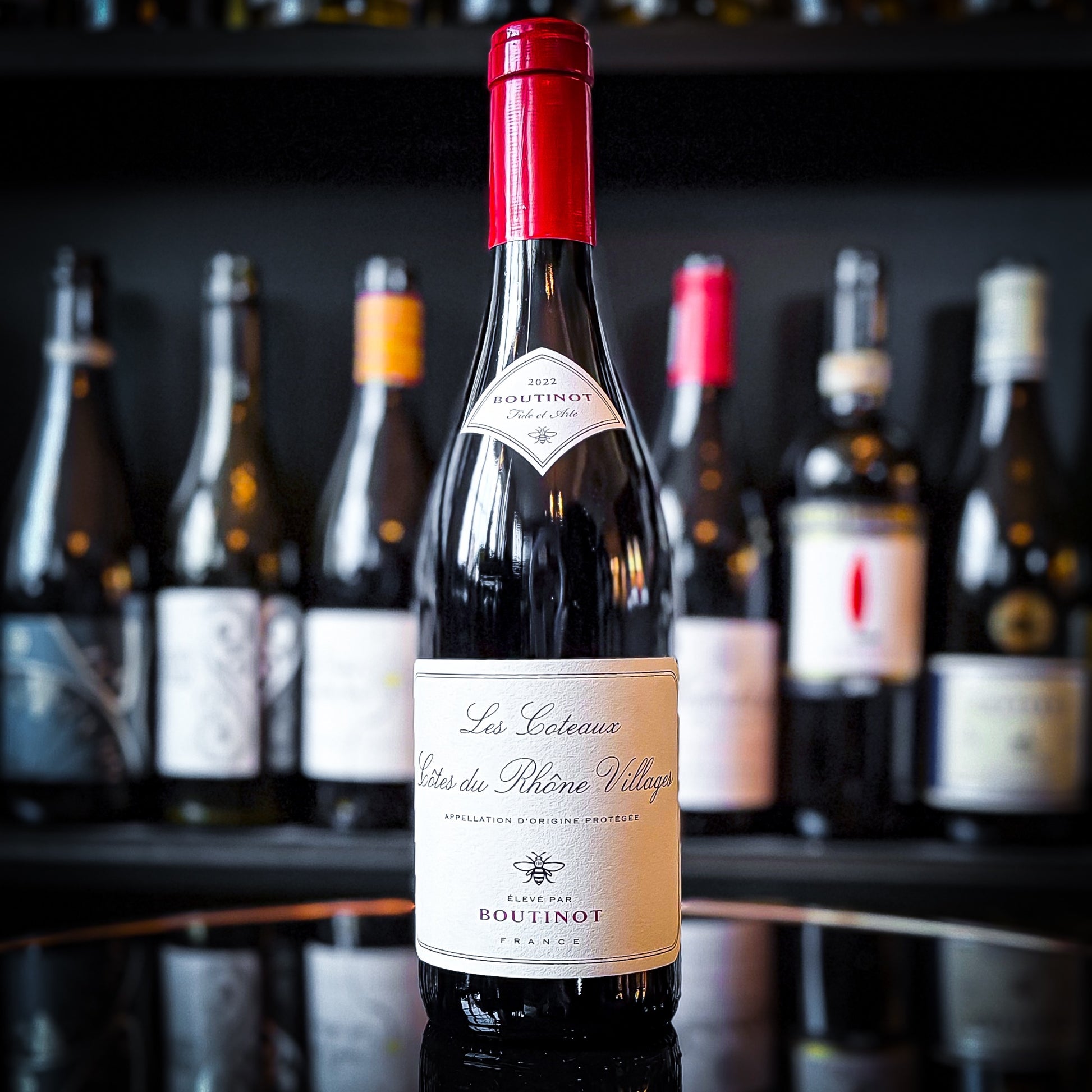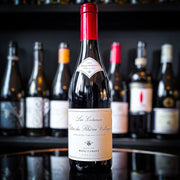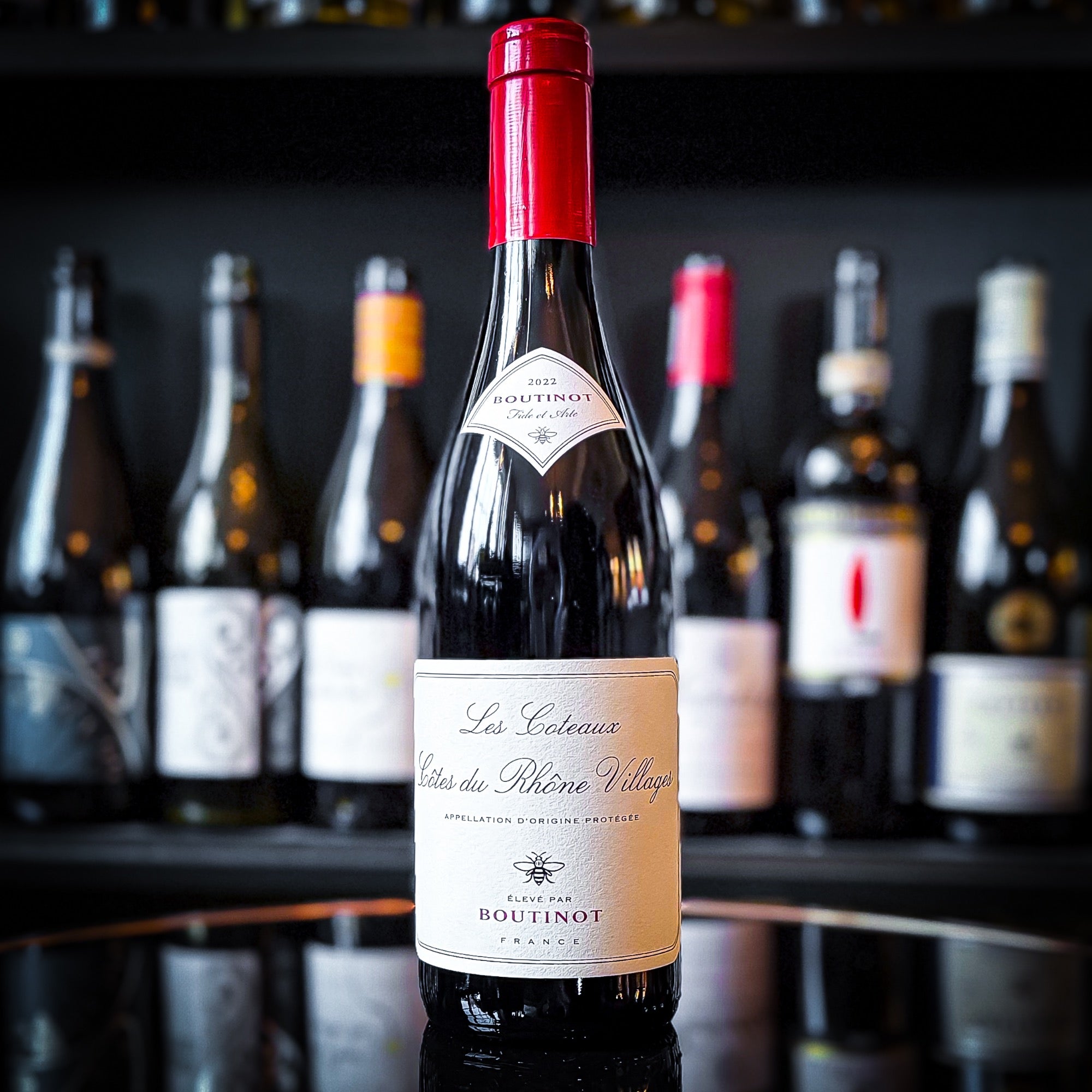Domaine Boutinot Les Coteaux Côtes du Rhône Villages
Domaine Boutinot Les Coteaux Côtes du Rhône Villages
2023
Rich, juicy blackberry and raspberry fruit underpinned by subtle oak
Available in stock (55)
Couldn't load pickup availability
A blend of Grenache Noir and Syrah, this wine exhibits rich, juicy blackberry and raspberry fruit underpinned by subtle oaky nuances, lovely sweet spice; warm star anise with a touch of cinnamon. This classic Côtes du Rhône Villages is enriched with specially selected parcels from the cru vineyards of Séguret, Sablet and Cairanne. This is a fantastic-value wine and has consistently been a best-seller at Tivoli Wines over the past 5 years.
Common practice in the Côtes du Rhône is to bottle the best cuvées as a single, named, village wine and the rest as more basic Côtes du Rhône Villages. Boutinot’s philosophy, on the other hand, is to start with the intention of making the very best Côtes du Rhône Villages possible by sourcing wine from the vineyards of named villages and enriching them with a small proportion of barrel-aged wine from Sablet and Séguret.
Boutinot's Côtes du Rhône Villages 'Les Coteaux' is therefore a selection of the best Grenache Noir and Syrah from some of the 17 named Côtes du Rhône Villages. Sourced from several growers with exceptional terroir and so have the flexibility to select only the very best fruit each vintage (rejecting parcels which do not meet high standards). Mostly unoaked, a small proportion (15%) is part-aged for up to 20 months in a few new, but mostly older, oak barrels to bring depth and subtle notes of complexity.
Producer: Boutinot France
Producer: Boutinot France
Region: The Rhône Valley
Region: The Rhône Valley
Grape: Grenache/Garnacha
Grape: Grenache/Garnacha
Grenache/Garnacha
Syrah/Shiraz
Grape: Syrah/Shiraz
Grape: Syrah/Shiraz
Grenache/Garnacha
Syrah/Shiraz
Delivery information
UK Mainland
- - England & Wales: Free standard delivery on orders over £150
- - England & Wales: £10.99 standard delivery on orders below £150
- - England & Wales: Saturday delivery is £24.99.
- - Scotland: Standard delivery from £13.99 but this is dependant upon the shipping postcode
- - Scotland: Standard delivery is subsidised on orders over £150
- - Scotland Saturday delivery from £28.99 but this is dependant upon the shipping postcode.
Local delivery
- - We offer free local delivery to GL50, GL51, GL52, GL53 and GL54 on orders over £100.
- - £5.99 on orders below £100.
- - Saturday delivery is £24.99.
UK Non-Mainland (Islands & Highlands)
- - Delivery costs will vary. Please enter your postcode at the checkout to calculate.
- - We are currently unable to deliver to Northern Ireland.
Delivery Times
- - Standard delivery within 5 business days (Monday to Friday)
- - In most cases, if orders are made before 12pm, we will endeavour (with our delivery partner) to deliver the next working day.
Terms & Conditions
- - Tivoli Wines or our delivery partner will notify you by way of email and/or SMS when your goods are to be dispatched to you. The message will contain details of estimated delivery times in addition to any reasons for a delay in the delivery of the Goods purchased by you.
- - If Tivoli Wines receives no communication from you, within 14 days of delivery, regarding any problems with the Goods, you are deemed to have received the Goods in full working order and with no problems.
- - Free delivery qualifies for orders meeting the minimum order value and within the Mainland UK. Non-wine items do not qualify towards the free delivery minimum order value. Should your order change for any reason resulting in the total order value falling below the minimum order value, you may be required to pay an additional fee for delivery.
- - Additional charges may apply to orders outside of mainland UK (e.g. the Scottish Isles, Isle of Wight, Northern Ireland, Scottish Highlands, Channel Islands) or outside the United Kingdom.
- - All goods must be signed for on delivery by an adult aged 18 years or over.
- - If our carrier is unable to deliver your order, it will be returned to us and an additional charge may required for redelivery.
- - Tivoli Wines, nor its chosen carrier, can be held responsible for the security of your order if specific instructions are left for the carrier in your absence or inability to take delivery.
- - Please read our full Terms and Conditions regarding orders and delivery.




